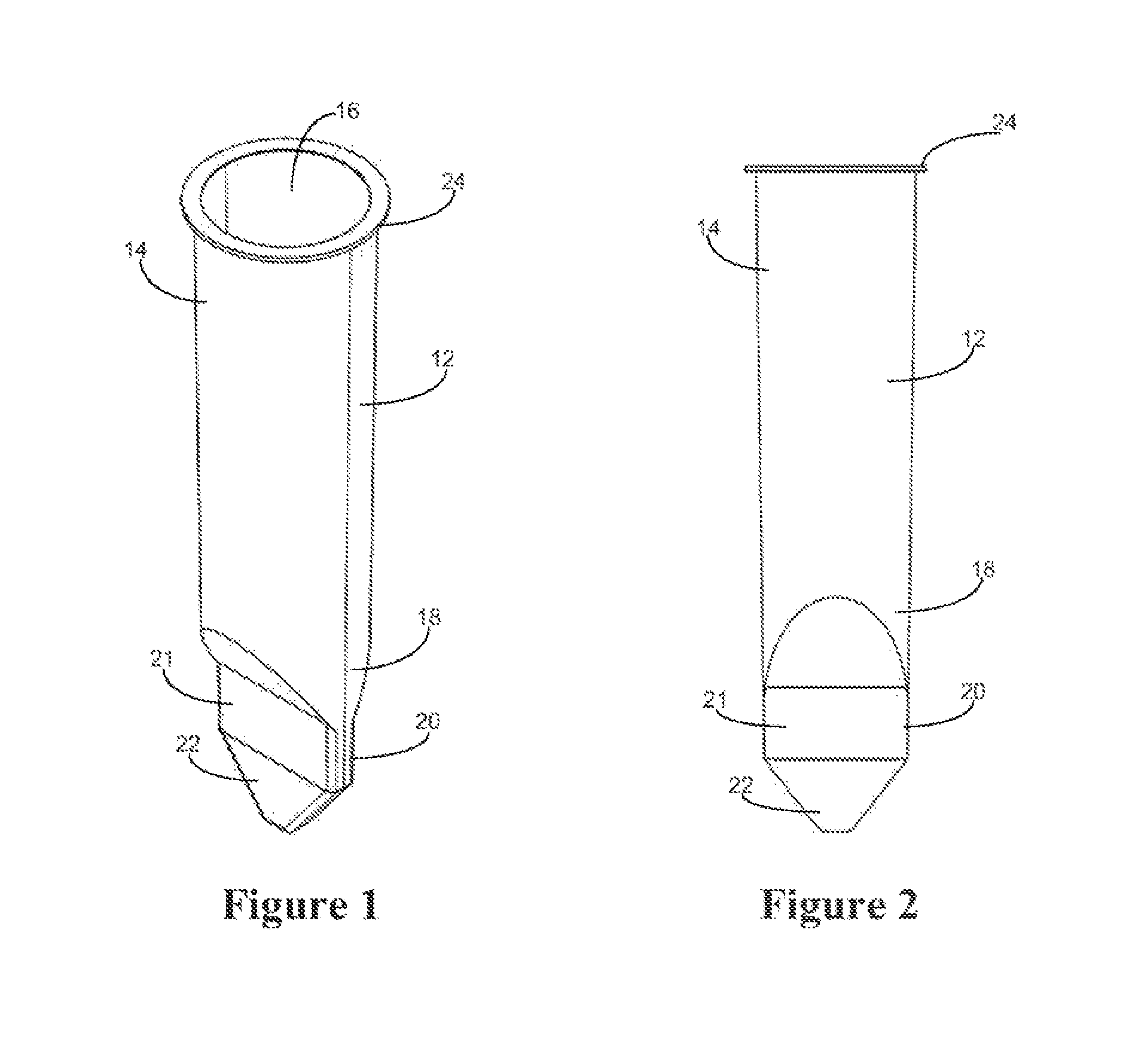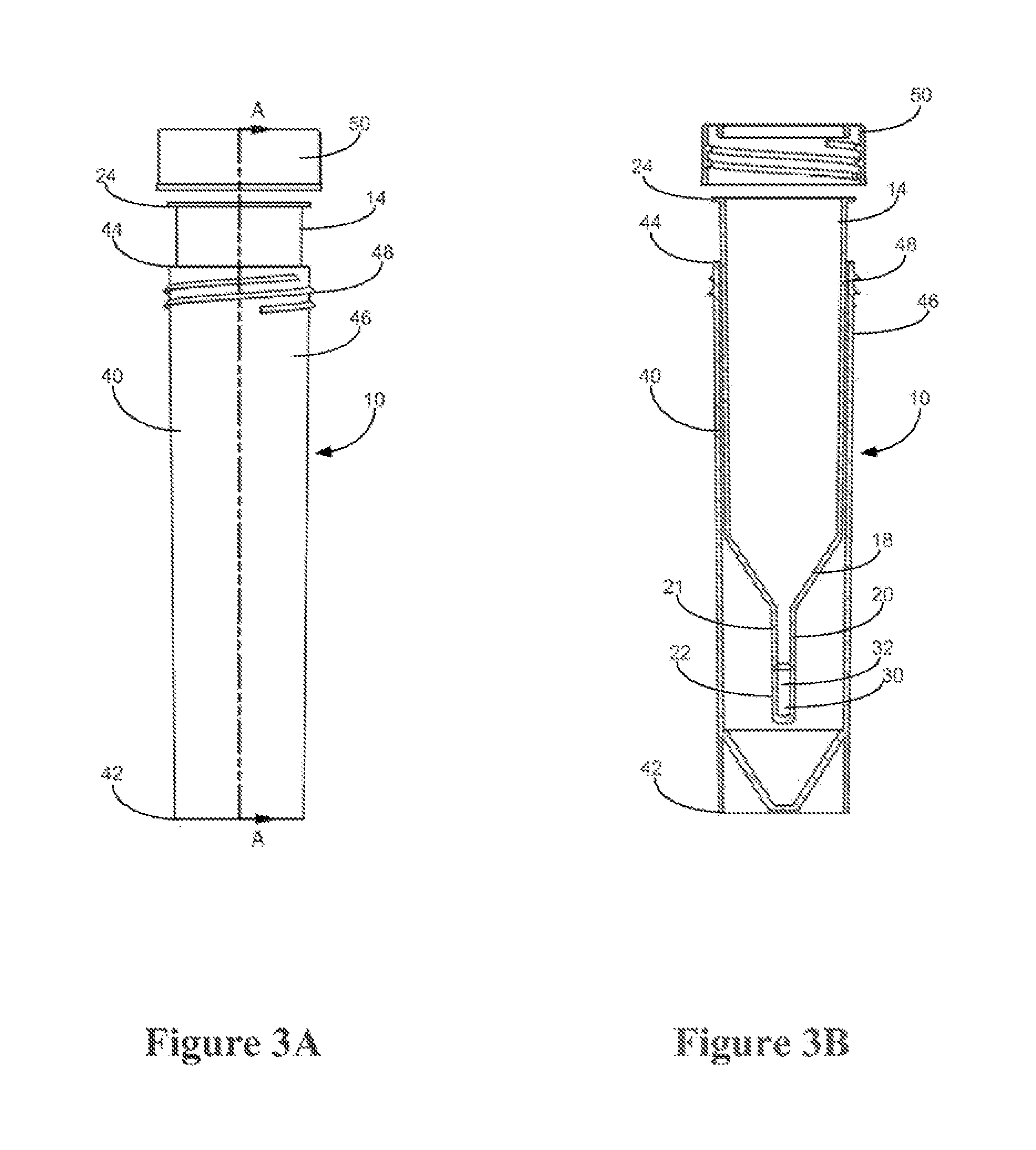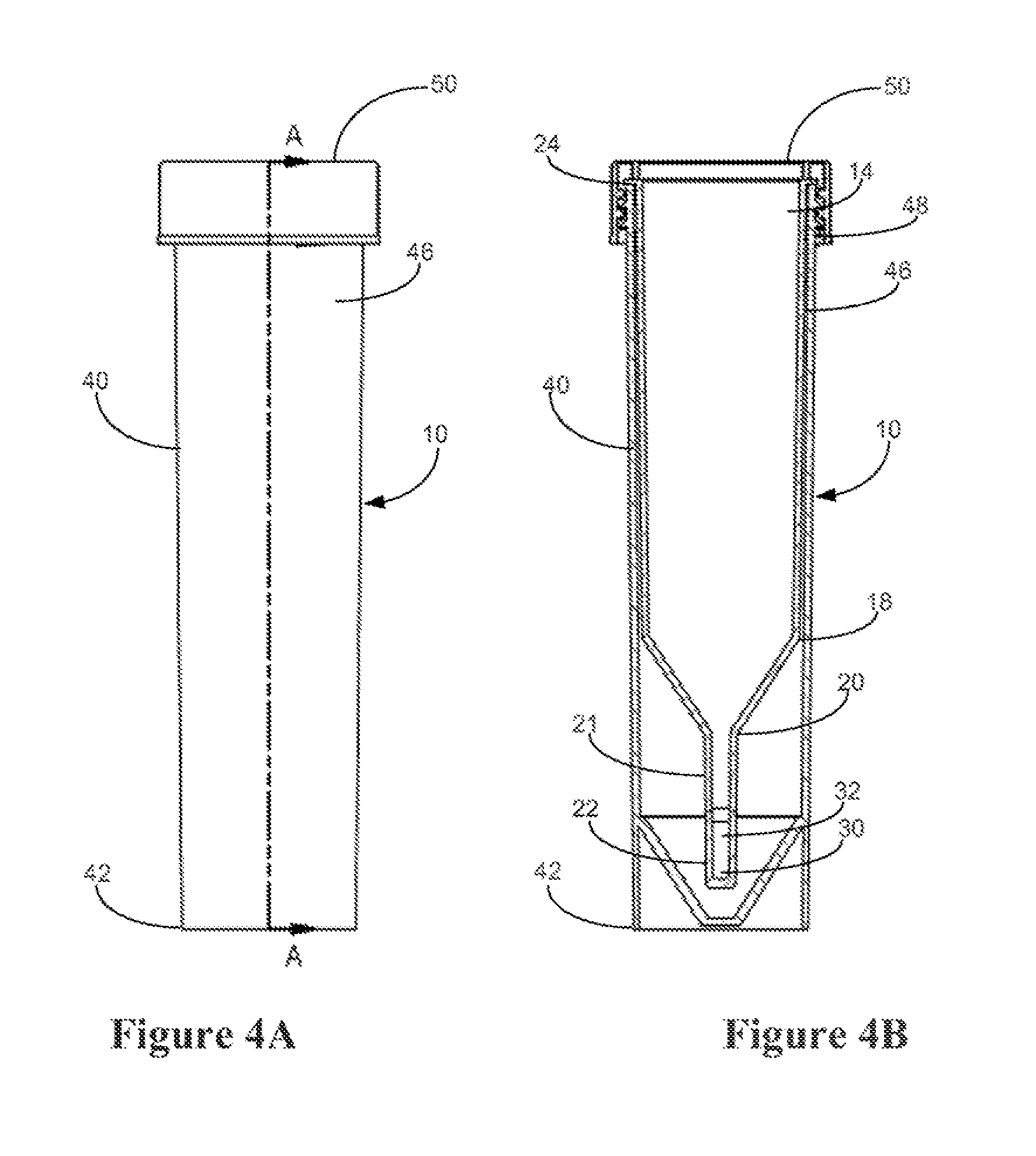Device for Rapid Urine Concentration
a technology for urine and urine concentration, applied in the field of urine collection and urine concentration methods and devices, can solve the problems of difficult and expensive shipping of large volumes of urine, difficult to complete concentration steps, and inability to meet the requirements of urine collection, etc., and achieve the effect of rapid urine sample concentration
- Summary
- Abstract
- Description
- Claims
- Application Information
AI Technical Summary
Benefits of technology
Problems solved by technology
Method used
Image
Examples
example 3
Binding of LAM from Urine to Silicon Carbide Using Ethanol
[0097]Four different 1 mL urine samples were spiked with 5 pg / mL of lipoarabinomannan (LAM) and mixed well. Next, 100 mg of silicon carbide (grit size 2500) was added to the tubes containing the urine sample. Ethanol was then added to 3 of the tubes in order to allow the LAM to bind to the silicon carbide resin. The ethanol was added such that the final concentration of ethanol was 10% in the first tube, 20% in the second tube, and 30% in the third tube. The fourth tube was used as control and no ethanol was added. All the tubes were closed and mixed by inverting for 30 seconds. After mixing, the resin settled through gravity to the bottom of the tubes. The urine supernatant was then removed using a pipette and transferred to a clean tube. Next, 200 μL of water was added to the resin and mixed by inversion for 30 seconds in order to elute the bound LAM from the silicon carbide resin.
[0098]To test the effect of increasing etha...
example 4
Binding of LAM from Urine to Silicon Carbide Using Guanidine Hydrochloride
[0100]Four different 1 mL urine samples were spiked with 10 pg / mL of lipoarabinomannan (LAM) and mixed well. Next, 100 mg of silicon carbide (grit size 2500) was added to the tubes containing the urine sample. Guanidine hydrochloride was then added to 3 of the tubes in order to allow the LAM to bind to the silicon carbide resin. The guanidine hydrochloride was added such that the final concentration of guanidine hydrochloride was 0.5M in the first tube, 1.0M in the second tube, and 2.0M in the third tube. The fourth tube was used as control and no guanidine hydrochloride was added. All the tubes were closed and mixed by inverting for 30 seconds. After mixing, the resin settled through gravity to the bottom of the tubes. The urine supernatant was then removed using a pipette and transferred to a clean tube. Next, 200 μL of water was added to the resin and mixed by inversion for 30 seconds in order to elute the ...
example 5
Binding of LAM from Urine to Silicon Carbide Using Sodium Citrate
[0103]Three different 1 mL urine samples were spiked with 5 pg / mL of lipoarabinomannan (LAM) and mixed well. Next, 100 mg of silicon carbide (grit size 2500) was added to the tubes containing the urine sample. Sodium citrate was then added to the 3 tubes in order to allow the LAM to bind to the silicon carbide resin. The sodium citrate was added such that the final concentration of sodium citrate was 0.2M in the first tube, 0.4M in the second tube, and 0.6M in the third tube. All the tubes were closed and mixed by inverting for 30 seconds. After mixing, the resin settled through gravity to the bottom of the tubes. The urine supernatant was then removed using a pipette and transferred to a clean tube. Next, 200 μL of water was added to the resin and mixed by inversion for 30 seconds in order to elute the bound LAM from the silicon carbide resin.
[0104]To test the effect of increasing sodium citrate concentration on bind...
PUM
| Property | Measurement | Unit |
|---|---|---|
| grit size | aaaaa | aaaaa |
| temperature | aaaaa | aaaaa |
| temperature | aaaaa | aaaaa |
Abstract
Description
Claims
Application Information
 Login to View More
Login to View More - R&D
- Intellectual Property
- Life Sciences
- Materials
- Tech Scout
- Unparalleled Data Quality
- Higher Quality Content
- 60% Fewer Hallucinations
Browse by: Latest US Patents, China's latest patents, Technical Efficacy Thesaurus, Application Domain, Technology Topic, Popular Technical Reports.
© 2025 PatSnap. All rights reserved.Legal|Privacy policy|Modern Slavery Act Transparency Statement|Sitemap|About US| Contact US: help@patsnap.com



